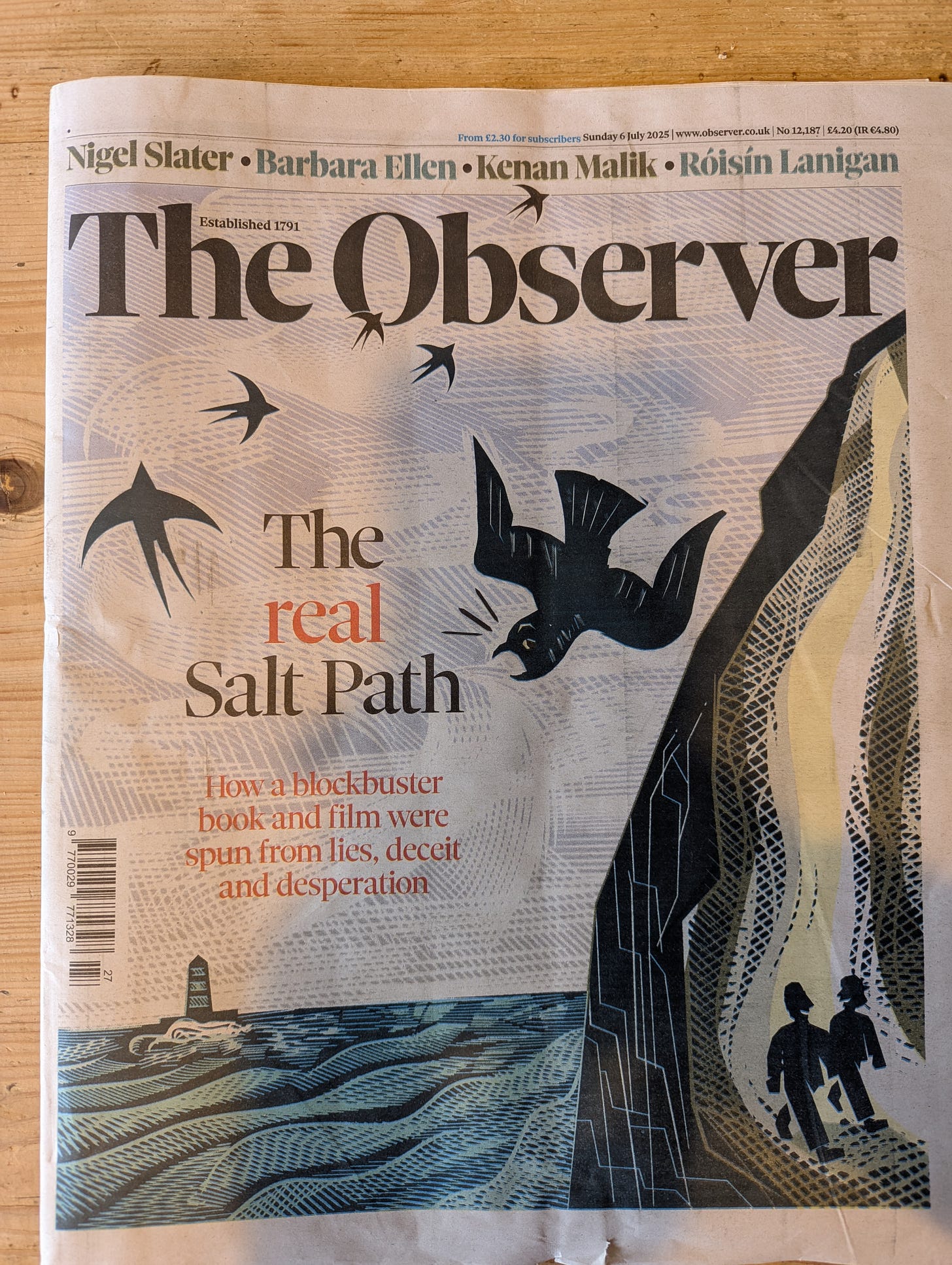The Salt Path and author contract 'warranties'
I've signed more than two dozen author contracts. The clauses about untrue and harmful statements are fearsome.
The memoir ‘The Salt Path’, about walking the 1000km South West Coast Path, has sold millions of copies and has been made into a feature film currently showing in UK cinemas. Last Sunday’s ‘Observer’ published an investigation alleging that the supposed factual and honest account is in fact mendacious and dishonest. If you’re reading this, you presumably already know all about it.

According to the Publishers, Penguin Books, author Raynor Winn’s contract contained the usual warranties; and also the manuscript had suffered the usual legal read-through.
"Penguin undertook all the necessary pre-publication due diligence, including a contract with an author warranty about factual accuracy, and a legal read, as is standard with most works of non-fiction." (BBC news report here )
Here is what those warranties typically include:
Clause 98 The Author warrants and guarantees to the Publisher that:
(xcvii) All statements purporting to be facts are true
(xcviii) No instruction or advice contained in the work, if followed, will cause injury, death or other harm to the user
Clause 99 The Author agrees to indemnify the Publisher in full against any actions, claims, proceedings, damages and costs, including legal costs, compensation costs, and out of court settlements made on the advice of the Publisher’s legal advisors, resulting from a breach of these warranties.
So if some third party makes a claim against the publishers, the publisher’s lawyers can fight the claim or settle out of court, and come to the author for the money. All of their money. Such a third party might be the film distributors, or someone who has suffered harm due to using a 600-mile walk as a treatment for a Parkinsons-like illness.
Raynor Winn may not have signed terms like these, but in my experience of four or five different publishers they are widespread, especially where a large publishing house is negotiating against a small freelance like me without legal representation.
Terrifying? One publisher admitted to me, that is the exact intention: to strike terror and dread into the author. Though this will only work on authors who actually read our contracts…
Hopefully, Raynor has set herself up as a limited company, or has good professional indemnity insurance. As otherwise, it’s even possible she may be losing her house for the second time.
The mention of the legal read-through is disingenuous. The ‘legalling’ is to check whether the distant relative whose business collapse lost the Winns their house is in a position to sue for libel. It has nothing to do with checking that the distant relative in question actually exists. My publishers trust me, and trust the fearsomeness of their Warranties clauses, and none of my books has been fact-checked at the publishers’ expense. This may be about to change, in which case the fact-checkers will likely earn more than I do out of my books.
Finally, if you are an author confronted with a publishing contract, I strongly advise joining the Society of Authors (in the UK) for their contract-vetting service (free to members).







Agee with all of this. Those indemnification clauses are fearsome in how they protect publishers.
But to my knowledge as a non-lawyer, here in the U.S. those clauses don't protect publishers from lawsuits alleging false advertising (as opposed to libel or another tort), including class action suits: that is, readers can sue if they bought a book based on an ad saying that a book was a "true" story that wasn't. They did that in the James Frey case, and the publisher offered refunds. Class-action lawsuits by readers can also seek remedies such as requiring publishers to withdraw books from circulation or to stop promoting them. That kind of moral victory may appeal to some readers more than the small refund they might get.
I’ve been rubbernecking this scandal and this is a very interesting bit of context, thanks